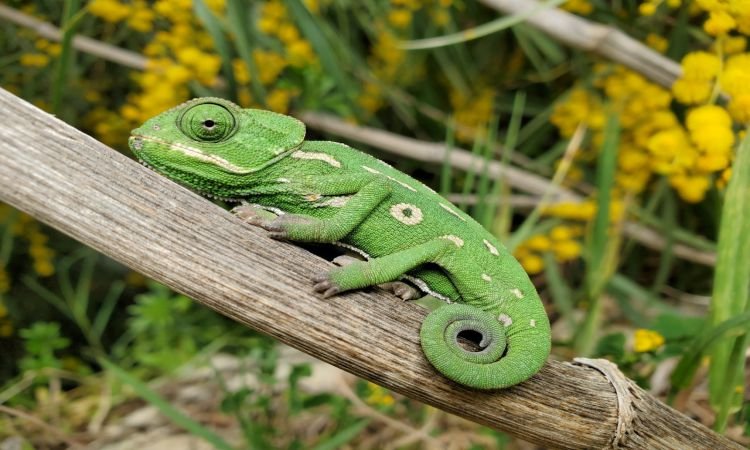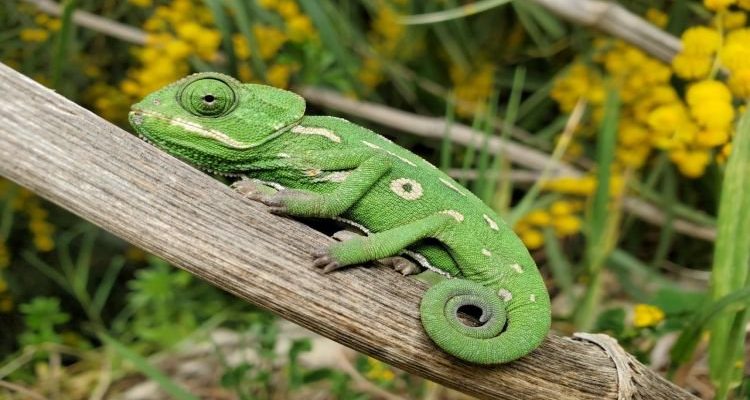
Just like how we all have our reasons for skipping a meal, chameleons can have various factors affecting their appetite. From environmental conditions to health issues, there’s a lot to unpack. Let’s dive into what might be behind your chameleon’s reluctance to eat. By understanding these common causes, you’ll be better equipped to help your colorful companion regain its appetite.
Stress and Environmental Factors
Stress is a sneaky culprit when it comes to chameleons. These little guys are sensitive creatures, and anything out of the ordinary can throw them off their game. Think of it like moving to a new city—everything feels strange and unsettling at first.
A sudden change in their habitat, such as increased noise, new pets, or even rearranging the terrarium, can lead to stress. Chameleons thrive in stable environments. If you’ve made any changes, give your pet some time to adjust. You can also help by providing hiding spots and calm areas where they feel secure.
Temperature plays a massive role too. Chameleons need a specific temperature range to digest food properly. If it’s too cold, they might not feel like eating. Make sure your basking light is on and that your pet can find just the right warm spot. You’d be surprised how a little warmth can spark an appetite!
Health Issues to Consider
Sometimes, the reason behind your chameleon’s lack of interest in food could be a health issue. Think of it this way: if you weren’t feeling well, would you want to head to your favorite restaurant? Probably not!
Common health problems that can affect a chameleon’s appetite include:
- Parasites: These little invaders can wreak havoc on a chameleon’s digestive system.
- Respiratory infections: If your chameleon is sneezing or wheezing, it might not feel up to eating.
- Obesity: Believe it or not, overfeeding can lead to a lack of interest in food. An overweight chameleon may be lethargic.
It’s essential to keep an eye out for any unusual behaviors or symptoms. If you suspect something isn’t right, a visit to the vet can provide peace of mind and help get your chameleon back on track.
Feeding Issues – What You’re Offering
If your chameleon isn’t eating, it might be time to reevaluate what’s on the menu. Even the pickiest eaters have their preferences, and sometimes it takes a bit of experimentation to find what they like. Imagine having the same dinner every night—yawn, right?
Consider the size and type of food you’re offering. Too big? Too small? Or maybe it’s just not appealing enough. Chameleons tend to enjoy live prey, so make sure you’re providing crickets, roaches, or mealworms that are the right size and healthy.
Additionally, if you’re feeding them pre-packaged food, it might lack the flavor or aroma that grabs their attention. You could even try dusting their food with some calcium or vitamin powder. It’s like adding a little seasoning to make it more enticing.
Age and Seasonal Changes
Just like us, chameleons go through phases. As they age, their appetite can fluctuate. Juvenile chameleons tend to eat more, while adults may naturally reduce their food intake. Think of it as a refined palate, learning to appreciate smaller portions as they mature.
Seasonal changes can also play a role. During breeding season, for instance, many females lose their appetite as they prioritize energy for reproduction. If you’re noticing a sudden change in eating habits during this time, be patient and allow nature to take its course.
Hydration Levels and Their Impact on Appetite
Hydration is crucial for your chameleon’s health and well-being. Just like you wouldn’t enjoy a meal when you’re dehydrated, your chameleon may skip meals if it’s not getting enough water.
Chameleons often drink from droplets on leaves, so misting their habitat regularly is essential. If they’re not getting enough moisture, they might not feel up to eating, especially if they’re feeling dehydrated. Make sure to create an environment where they can easily hydrate—consider adding a drip system or increasing misting frequency.
Stress from Overhandling
Handling your chameleon can be a bonding experience, but too much interaction can lead to stress and a lack of appetite. Imagine being constantly poked and prodded when all you want is to relax at home!
If you’ve been handling your chameleon often, it might be time to give it some space. Instead of picking it up daily, let it explore its environment on its own terms. Observe from a distance and let your pet engage with its habitat. This independence is crucial for their overall well-being.
So, if your chameleon isn’t eating, remember there’s often a reason behind it. Whether it’s stress, health issues, diet choices, or even hydration levels, a little investigation can go a long way. Caring for a chameleon is like being a detective—you’ve got to piece together the clues to understand what’s going on.
Make sure to provide a stable environment, keep an eye on their health, and offer a variety of foods. With these tips, you’ll be better equipped to help your colorful friend get back to its munching ways. Your chameleon’s appetite will return, and soon enough, you’ll see it enjoying its meals again!

